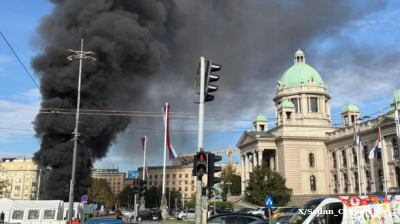Farzaneh Sadegh, the only female minister proposed by Iran’s new President, Masoud Pezeshkian, will be the second woman in a ministerial post in the history of the Islamic Republic if approved by the parliament. Still, the question stands as to whether she will be permitted to carry the heavy portfolio amid growing opposition from ultra-misogynists.
During the Shah's regime, Iran had two female ministers in charge of education and women's affairs. Following the revolution, it wasn't until the Ahmadinejad era that Iran saw its first female minister, when Marzieh Vahid Dastjerdi ran the Health Ministry from 2009 to 2012.
Sadegh is expected to face challenges in convincing a parliament dominated by conservatives to give her a vote of confidence. However, she has so far garnered support from several groups of the left, but it is a 50/50 split on whether she will make the cut.
Some MPs voiced their protest when Sadegh's name was read out as a proposed minister on 11 August; several newspapers and media outlets later criticised this reaction as patriarchal. Sadegh has 28 years of experience in various positions related to architecture and urban management and development, including serving as deputy minister of roads from 2018 until 2023.
Her removal last year came after she opposed projects by Tehran Mayor Alireza Zakani, who is notorious among environmentalists. Activists have launched a petition for Zakani's removal. Sadegh is known for her stance against urban sprawl—the expansion of metropolises into surrounding rural areas. In one notable instance, she firmly opposed a project to build a residential area in the deserts around the capital, which would have encroached on natural protected areas.
Sadegh was later criticised for blocking a scheme that the late President Ebrahim Raisi had pledged to revive. However, in a one-hour interview with a news agency, she staunchly defended her position, holding her ground against the interviewer's questions.
Sadegh’s opponents accuse her of opposing urban development and the construction of residential towns to address housing shortages in large cities. She has explained in her interviews that she is not against all types of development but has issues with the horizontal expansion of cities.
“Under the pretext of providing homes for the needy people, one cannot justify building housing around large cities, on earthquake faults, or in flood-prone valleys, or expanding the city without considering the necessary infrastructure and facilities for development, and turning cities into dormitories,” she has argued.
She has so far gained a vote of confidence from the parliament’s construction commission, although some argue that the vote was given in the absence of a third of lawmakers.
The transport commission of Iran’s Chamber of Commerce has also supported her, highlighting her extensive experience within the ministry. “Besides the commission, several other transport organisations have also supported her,” Reza Rostami, head of the commission, said. Further, a group of environmental activists and academics declared strong support for Sadegh in a letter hoping she can address vital issues affecting the country currently.
The Iranian parliament began debating Pezeshkian’s cabinet lineup on August 17 and is set to give its final votes to the proposed ministers on August 21. Pezeshkian, who won the elections with overwhelming support from the reformist faction, has introduced a cabinet that includes politicians from the opposing club.
Opinion on the street in Tehran
The nomination of a female candidate for Iran's Ministry of Roads and Urban Development has sparked debate among citizens. Here's what some had to say:
An anonymous commenter questioned online, "Don't they have any opinions on transportation? Is housing production the only issue?"
Another anonymous poster suggested that ministries like Health and Education were more suitable for women, arguing that Roads and Urban Development needed an experienced man who had already proven himself successful.
However, this view was challenged by a third commenter who praised the candidate's relevant experience and work at high levels within the ministry.
"God willing, you'll become the second female minister of the Islamic Republic of Iran," one supporter wrote, adding a prayer for her success in helping young families achieve home ownership.
Ali took a contrary stance: "A woman isn't suitable for this ministry. God willing, she won't get the votes."
Some, like Asal, offered specific policy suggestions: "Bring prefabricated housing to the market too. It's both cheaper and faster to build."
Mehdi gave a nuanced view, saying that while the candidate might be good for housing, the transportation sector required someone more seasoned. He suggested splitting the ministry into separate housing and transportation departments.
Mohammad Fallah expressed concern about the candidate's qualifications, stating that her proposed programme demonstrated a lack of understanding of the ministry's core responsibilities, which include roads, railways, airports, ports, and meteorology.
News
_1761147529.jpeg)
China accuses Washington of “bullying” over visa ban threats in Central America
China has sharply criticised the United States for its decision to impose visa restrictions on Central American officials and citizens accused of ties to the Chinese Communist Party, describing the move as evidence of American “arrogance and bias."

Serbian president calls fire, shooting outside parliament a terrorist attack
The attacker, a retired employee of the former State Security Service, opened fire on a tent settlement of pro-government supporters.

Bolivia's new leader must rebuild a shattered economy
Bolivia enters a new political and economic phase as centrist Rodrigo Paz prepares to take office on November 8, inheriting one of the country’s most acute crises since the hyperinflation of the 1980s.

Hungarian foreign minister says "many actors" worked to prevent Budapest summit
The White House has suspended plans for a meeting between US President Donald Trump and Russian President Vladimir Putin in Budapest.

.jpg)


